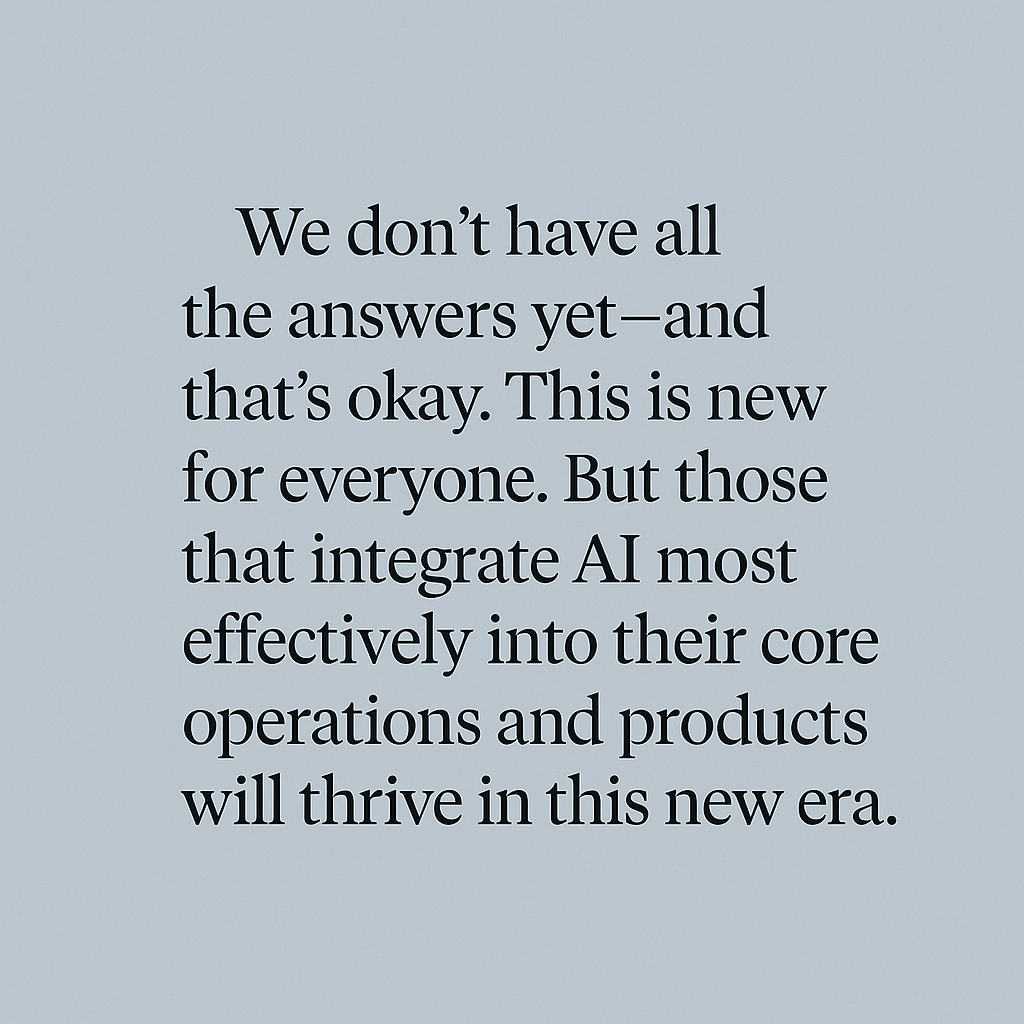Evolve or Die: Why Every Startup Must Become AI-First
Evolving to become AI-first is crucial for startups to stay competitive and innovative in a rapidly changing tech landscape.

The AI-first imperative
The way we build technology companies is undergoing the most profound shift in a generation. AI is no longer a feature or a bolt-on: it’s the new foundation. For startups, the message is clear: evolve into an AI-first organization, or risk irrelevance.
Why now?
AI is rapidly becoming the default starting point for product and company design. Engineering teams are moving up the stack, spending less time on rote code and more on orchestrating intelligent systems. The companies that thrive will be those that embrace this new paradigm, not those who wait for the dust to settle.
What's changing
- AI everywhere: From content generation to customer support, AI is permeating every layer of the product stack. If you're not integrating AI deeply, you're already behind. I talked about this at length on John Rankins' podcast, Sales Machine—check out the discussion for real-world examples of how AI is transforming every function:
- Agentic AI unlocks new value: Autonomous, continuously optimizing systems are opening up new ways to package, price, and deliver value. This isn’t just a technical shift: it’s a business model revolution.
- Technical debt is existential: Up to 40% of tech estates are bogged down by legacy systems. In the AI era, this isn’t just a drag on velocity: it’s a threat to survival. If you don't address it, you can't scale, compete, or innovate. See MIT Sloan Review: How to Manage Tech Debt in the AI Era
- Agentic architecture is the future: Systems must evolve to support autonomous decision-making, adaptive learning, and seamless integration. This is how you build for the next decade, not the last.
What's not changing
- Technical excellence is non-negotiable: AI raises the bar. LLMs and other tools help you move faster, but they don't excuse sloppy thinking or poor engineering.
- Value creation fundamentals endure: AI is a means to an end: better products, faster growth, stronger economics. The basics of building a valuable company haven't changed.
- Customer centricity is paramount: AI can accelerate and optimize, but it must always serve real customer needs. Trust, transparency, and governance are more important than ever.
The playbook: how to evolve
-
Budget for AI (time, money, and learning): Make AI adoption a line item. At MadKudu, we run 1/2 day hackathons every week, alternating between Product and GTM orgs. PMs and technical team members join both. I personally prepare most of these because, as cofounder and CPO, I see this as core to my job. In the past month, I've onboarded our CSM and AEs on Cursor—they now use Cursor rules to generate email responses, account plans, and more. Every team member is expected to upskill and experiment with AI tools, and we block time for this—even if it means a short-term productivity dip. This is how you build long-term leverage.
-
Prioritize tech debt remediation: This one sucks, but it starts with writing a ton of documentation—PRDs, TRDs, customer-facing docs, backend data flows, everything. This lets you feed your documentation to LLMs and in-house agentic systems to start addressing tech debt. Without this, you'll just end up posting memes about your tech debt like this...
-
Build agentic systems (crawl, walk, run): Don't try to boil the ocean. Start small: build a function, then an automation, and only then an agent. Don't skip steps or you'll end up with a useless agent. "Crawl, walk, run" is the only way to build AI that actually works and delivers value.
The bottom line
The winners in this new era won't be those with the flashiest AI demos, but those who weave AI into the fabric of their operations and products. The clock is ticking. Evolve, or die.
Let's build the future together.